Could disputed East China Sea islands be sold?
- Published
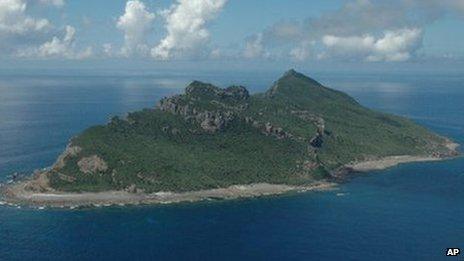
The archipelago constitutes eight small islands or rocks in the East China Sea
Remote, uninhabited but for feral goats and unusual species of moles and crabs, the attractions of the Senkaku islands as a piece of real estate are not immediately obvious.
But now there is an interested buyer for three of them, and if a transaction goes ahead, it could ratchet up tension between Asia's two biggest economies.
Even the name of the archipelago, which is administered by Japan, is a source of disagreement.
China calls the outcrops in the East China Sea the Diaoyu islands and says they are part of its territory. Taiwan also lays claim.
Putting aside the sovereign dispute, ownership in the strict legal sense lies with Kuniki Kurihara, a businessman from Saitama in the commuter belt outside Tokyo whose family is better known for running wedding reception halls.
Earlier this week during a visit to Washington, Tokyo Governor Shintaro Ishihara announced he was in discussions with Mr Kurihara about the city buying them.
He said a deal could be concluded by the end of the year "to protect Japanese territory".
Rented out
Mr Kurihara's lawyer, Makoto Watanabe, would not comment on the price - suggested valuations have run from zero to $500m (£311.9m) - but told the BBC that his client was motivated to sell.
He said Mr Kurihara was growing old, and the diplomatic stand-off had shaken his confidence in his ability to own the islands as his personal property.
He is said to have bought the islands 40 years ago from a man who had inherited them from ancestors who had held them since the 19th Century.
The Japanese government currently rents Mr Kurihara's three islands, as well as a fourth owned by another member of his family. The fifth is already the property of the state.
The islands are so controversial because of the potential riches that lie around them.
Four years ago, Beijing and Tokyo agreed to jointly develop nearby gas fields, but the deal was never implemented.
In 2010, a collision between a Chinese trawler and a Japanese coastguard vessel triggered a serious diplomatic stand-off between the two countries.
Intent 'to irritate'
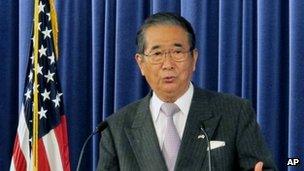
Tokyo Governor Shintaro Ishihara is known for being a staunch nationalist
Some observers have cast doubt on the viability of Mr Ishihara's plan.
They point out that the city's assembly might not consider buying islands 1,900km (1,200 miles) away from Tokyo an appropriate use of taxpayers' money.
Mr Ishihara's deputy has raised the possibility of appealing for public donations to fund the purchase.
Known as a strong nationalist, the Tokyo governor has made a career out of saying what many Japanese consider the unsayable.
In the past he has denied the Nanjing massacre took place and called for Japan to tear up its pacifist constitution in response to China's rise and acquire nuclear weapons.
Last year, he was forced to apologise for saying the earthquake and tsunami were divine retribution for the "egoism" of the Japanese.
His intervention over the Senkaku islands prompted a strong response from China, which said any purchase would be "illegal and invalid".
"I think the purpose of Ishihara was to irritate, if not infuriate, the Chinese," said Kuni Miyake, a former Japanese diplomat, who now runs the think-tank Foreign Policy Institute in Tokyo.
"The Chinese response was exactly what he wanted. Probably that overreaction will force the Japanese government, as well as the Japanese people, to be more defensive and more proactive. So Ishihara won, China lost, and the substance hasn't changed."
The Japanese government has already been pushed into action.
Speaking in parliament, Prime Minister Yoshihiko Noda reasserted Japan's sovereignty over the islands.
And hinting that the governor of Tokyo might face competition to secure their purchase, he said the national government "will consider everything while confirming the owner's true intentions over the recent developments".
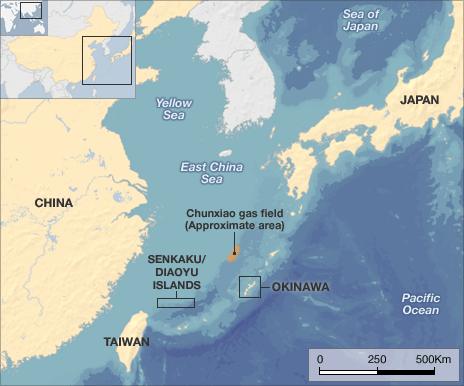
- Published17 April 2012
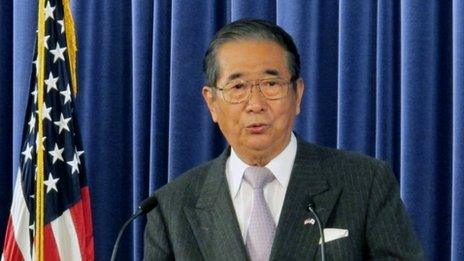
- Published28 February 2012
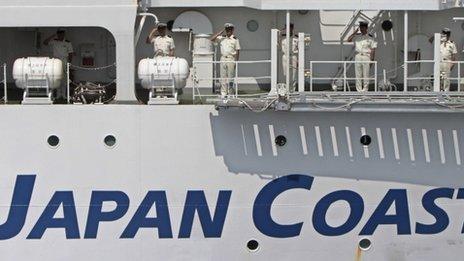
- Published3 January 2012
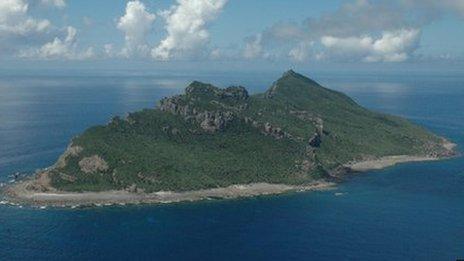
- Published10 November 2014
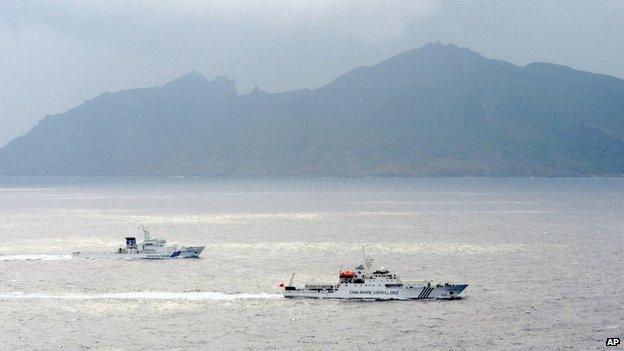
- Published3 January 2012